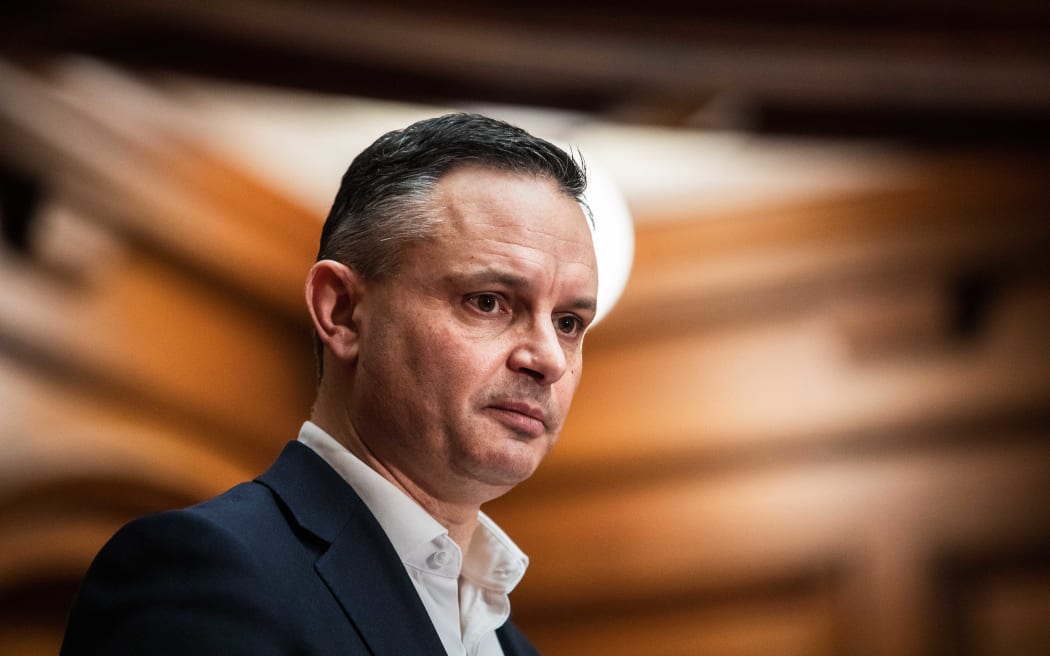
James Shaw said the new money made it one of the largest direct investors in New Zealand focused on climate change. Photo: RNZ / Samuel Rillstone
In a pre-Budget announcement, Climate Change Minister James Shaw said the government had nearly doubled the amount of money in its green investment bank.
Green Investment Finance is a commercial, independent entity set up to invest in low emission firms.
The fund - which aims to help drive down the country's climate emissions - has been given a capital injection of $300 million in new money, taking its total pot to $700m.
It has previously loaned money to companies putting solar panels on commercial buildings, to transition buses and the commercial fleet to electric vehicles, and into agricultural investment in fertilisers.
The firm focuses on scaling up proven propositions rather than acting as an angel investor in a businesses startup phase.
The government views the company as crucial to getting the private sector to do its part to meet the country's climate obligations.
"Public funding alone will not finance the scale of investment that's needed, with the urgency required, to address the climate crisis," Shaw said.
So far 16 investments have been made, and nearly $280m in capital committed.
Shaw said without the new investment the fund would have been tapped out by next year.
GIF chair Cecilia Tarrant said it had committed about $300m of its $400m fund, and was eyeing another $300m in possible investments.
Shaw said the new money made it one of the largest direct investors in New Zealand focused on climate change.
He said the GIF was starting to get to the size and scale he wanted, and the injection of capital would probably last three to five years.
"Since its establishment in 2019 New Zealand Green Investment Finance has been a major player in the work to finance and incentivise climate innovation and drive down emissions.
"This capital investment will support existing and future projects, including transport, process heat, infrastructure and early-stage companies.
"It will also open up new parts of the market and enable NZGIF to attract larger sums of private capital."
Tarrant said no businesses invested in had failed, and all of its debt investments were earning a commercial return.
As of June last year, the total estimated emissions reductions from investments was up to 710,000 tonnes of carbon dioxide equivalent - which was about 480,000 to 590,000 homes' energy use for one year, Shaw said.
The money comes from the Climate Emergency Response Fund which is fed from the revenue collected from the emissions trading scheme.
"We know we can't plant our way out of the climate crisis," Shaw said.
"We have to stop putting pollution into the atmosphere that causes climate change.
"The great thing about NZGIF is that it invests capital into companies, technologies, and projects that focus on abating emissions rather than offsetting."
As well as generating a rate of return, the capital was recycled and could be invested into other projects which was a win win, Shaw said.
"NZGIF shows that it is possible to deliver low carbon benefits alongside investment returns - and that capital coupled with purpose makes economic sense," Shaw said.
The bank's mandate is to:
- Invest to reduce emissions
- Invest on a commercial basis (it prices to risk and does not offer grants, subsidies or concessionary terms)
- Attract co-investors
- Demonstrate the benefits of low carbon investment to the market


